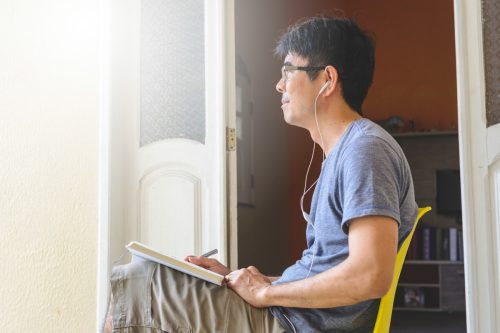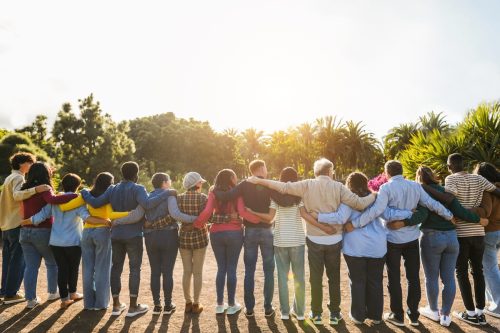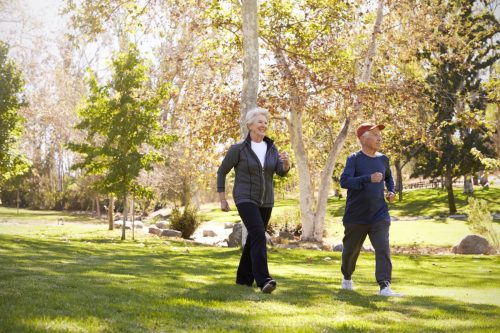The Best Longevity Tips Straight From the “Blue Zones”

Most of us dream of finding the path to living longer, and we frequently look to people who have made it past 100 for their secrets. The world’s oldest living man in 2020 said he was able to get to 112 years old by keeping a smile on his face every day. In 2015, an 104-year-old woman credited her long life to a more unconventional vice: three daily Dr. Peppers. But if you really want to know how to live a long, healthy life, you might want to focus on the blue zones.
In the early 2000s, National Geographic‘s Dan Buettner set out to explore regions of the world with reportedly high longevity. With a team of scientists and demographers, Buettner traveled the world in search of communities that had the highest rates of individuals living over 100 and clusters of people who had grown old without typical age-related health problems, such as heart disease, obesity, cancer, or diabetes.
He pinpointed five places that stood out for their longevity and vitality: Ikaria, Greece; Loma Linda, California; Sardinia, Italy; Okinawa, Japan; and Nicoya, Costa Rica. These became known as the blue zones.
Of course, we aren’t all able to just pick up and move to one of these regions—and it’s not clear that would make much of a difference. But you can certainly incorporate some of the blue zones residents’ habits into your own life. Read on for their six best longevity tips.
RELATED: People Who Live to 100 Have These 3 Things in Common, New Research Shows.
1
Make time to nap.

Sleep is super important to those living in blue zones. In fact, people in regions such as Ikaria often take the time to have a mid-afternoon break, according to the website Blue Zones.
“People who report napping at least 20 minutes, five days a week, have about a third lower rate of heart disease than people who just motor through the day,” Buettner told CNBC.
RELATED: 5 Subtle Signs You Aren’t Getting Enough Sleep, Doctors Say.
2
Express gratitude.

Certified initiative eating counselor Ellie Gervais has been living in Nicoya for two years. In a September video posted to her TikTok account @elliegervais, she shares some of the reasons she believes people in blue zones such as hers live longer.
“These are just things I’ve observed and experienced while living here,” Gervais says. “The first thing that I think stands out to me is their ability to express and feel deep gratitude for even the smallest things.”
RELATED: 7 Journaling Tips to Feel Happy Every Day in Retirement.
3
Help your community.

Another noticeable factor in blue zones is community, according to Gervais.
“It’s like so obvious to them to help one another,” she says in her TikTok video. “If somebody is broken down on the side of the road, without a doubt, somebody will stop and help them. It’s not even a question.”
Gervais details a situation in which her motorcycle gave out on the side of the road in Nicoya. She says that within just a few minutes, a man had pulled over to assist her.
“He took the time out of his day to help me,” she recalls. “And then he drove it around to get the engine going, and he fixed my motorcycle right then and there … and then he went on his merry way.”
This type of gesture in terms of connecting with and helping others in the community is “not at all rare” in a place like this, according to Gervais.
“I probably can’t even count on my fingers how many time somebody has helped me—a stranger has helped me on the side of the road with my motorcycle or something else,” she shares.
4
Take a walk.

You might assume people who live longer have stringent and brutal workout routines. But actually, all it takes is making time for walking.
“People in blue zones walk every day and they make it to 100 without all the other gadgetry and pageantry of working out,” Buettner told CNBC.
For example, shepherds in Sardinia walk five miles a day or more, according to the Blue Zones website. This simple act “provides all the cardiovascular benefits you might expect, and also has a positive effect on muscle and bone metabolism without the joint-pounding of running marathons or triathlons.”
RELATED: Why Walking Only 3,867 Steps a Day Is All You Need, Science Says.
5
Get down to the basics when it comes to food.

People in Sardinia also eat a lot of basic staples like minestrone soup and whole-grain sourdough, Buettner told NPR.
“People in the blue zones are eating the cheapest peasant foods,” he said, noting that the top five pillars of blue zone diets are whole grains, vegetables, greens, beans, and tubers.
“A cup of beans a day is associated with an extra four years of life expectancy,” Buettner said, adding that people living in these regions mostly cook their own meals as well. “There’s no DoorDash in the blue zones.”
6
Add nuts to your snacking list.

Another food secret for those living in blue zones? Nuts. According to the experts, people in Ikaria and Sardinia snack on almonds, while those in Nicoya prefers pistachios, and Adventists in Loma Linda eat all types of nuts.
In an article for the Blue Zones website, Buettner advises people to eat two handful of nuts per day. He notes that a health study from the Adventists in Loma Linda found that nut-eaters on average outlive non-nut-eaters by at least two to three years.
For more wellness advice delivered straight to your inbox, sign up for our daily newsletter.